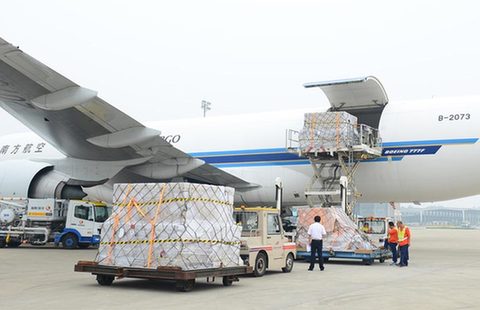Mainland buyers still cool to H shares
(Bloomberg) Updated: 2014-09-12 07:24Slumping demand for QDII funds, one of the few ways Chinese investors can currently gain access to stocks outside the mainland, is an indication of tepid interest in the exchange link, Francis Cheung, the head of Chinese mainland and Hong Kong strategy at CLSA, said at a briefing in Hong Kong on Aug 26.
Assets in the funds dropped to 53 billion yuan at the end of the second quarter, the lowest level since 2011, according to Shanghai-based research firm Z-Ben Advisors.
The first four QDII funds - Harvest Oversea Investment Fund, China AMC Global Equity Select Fund, China Southern International Selection Allocation Fund and CIFM Asia-Pacific Advantage Fund - have lost between 10 and 30 percent since their inception in late 2007, according to data compiled by Bloomberg. That compares with a 7.2 percent gain for the MSCI World Index.
 |
 |
"Short term, you could see A shares outperform," Robert Buckley, managing partner for Asia at Aviate Global, said in an e-mail from Hong Kong.
There are some mainland investors who are looking to use the exchange link to buy Chinese companies without local listings, said Earl Yen, chief investment officer at CSV China Opportunities Ltd in Shanghai, which oversees more than $230 million. Those include SJM Holdings Ltd, Stanley Ho's Macao casino operator, and Tencent Holdings Ltd, Asia's largest Internet firm, he said.
Interest in the link may grow as mainland investors learn more about the Hong Kong market, said Sally Wong, chief executive officer of the Hong Kong Investment Funds Association.
"I won't judge the success on day one," she said. "It will depend on investor access to education and the pool of stocks available. You don't want it to be like the through train in 2007, when investors rushed in. You want a more sustainable model."
Mainland investors have only recently regained an appetite for local shares after the Shanghai Composite Index lost $460 billion of market value in the three years through May, the most in the world, while almost 5 million stock accounts were liquidated. The Shanghai Composite fell 0.3 percent to 2,311.68 at the close on Thursday after gaining as much as 1.1 percent.
The Shanghai gauge has rebounded 16 percent since mid-March and the pace of new account openings rose to a six-month high in the week ended Aug 22 amid speculation the government will take steps to bolster economic growth and support equities. Initial public offerings on the mainland this year have surged an average 43 percent in their first day of trading.
"We have all the bigger companies listed here, and many of them are cheaper than their Hong Kong stocks," said Jiang, the Shanghai retiree.
- Stock connect 'will fundamentally change market'
- Institutions 'take the A train' for arbitrage profits
- HK still top choice for mainland firms
- Companies listing in HK choose fewer advisers
- HK's economy records 3.4% annual growth since return
- Shanghai-HK link set to boost arbitrage gains for investors
- China's property investment cools in August
- Alibaba roadshow bodes well for record-breaking IPO
- China Jan-Aug fixed asset investment rises 16.5%
- Britain to include China's RMB as foreign currency reserve
- China's retail sales up 11.9% in August
- China's industrial production slows in August
- China, Turkmenistan to deepen energy co-op
- The 10th Nanjing Software Expo kicks off
















